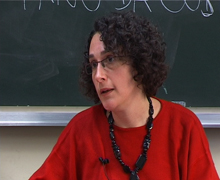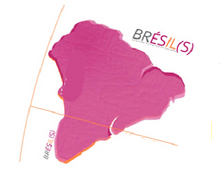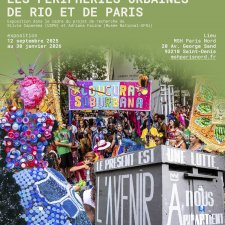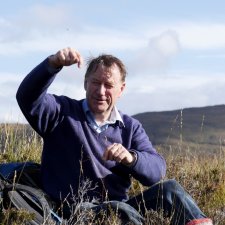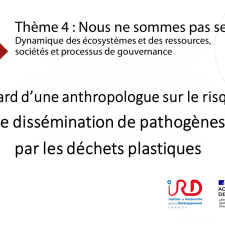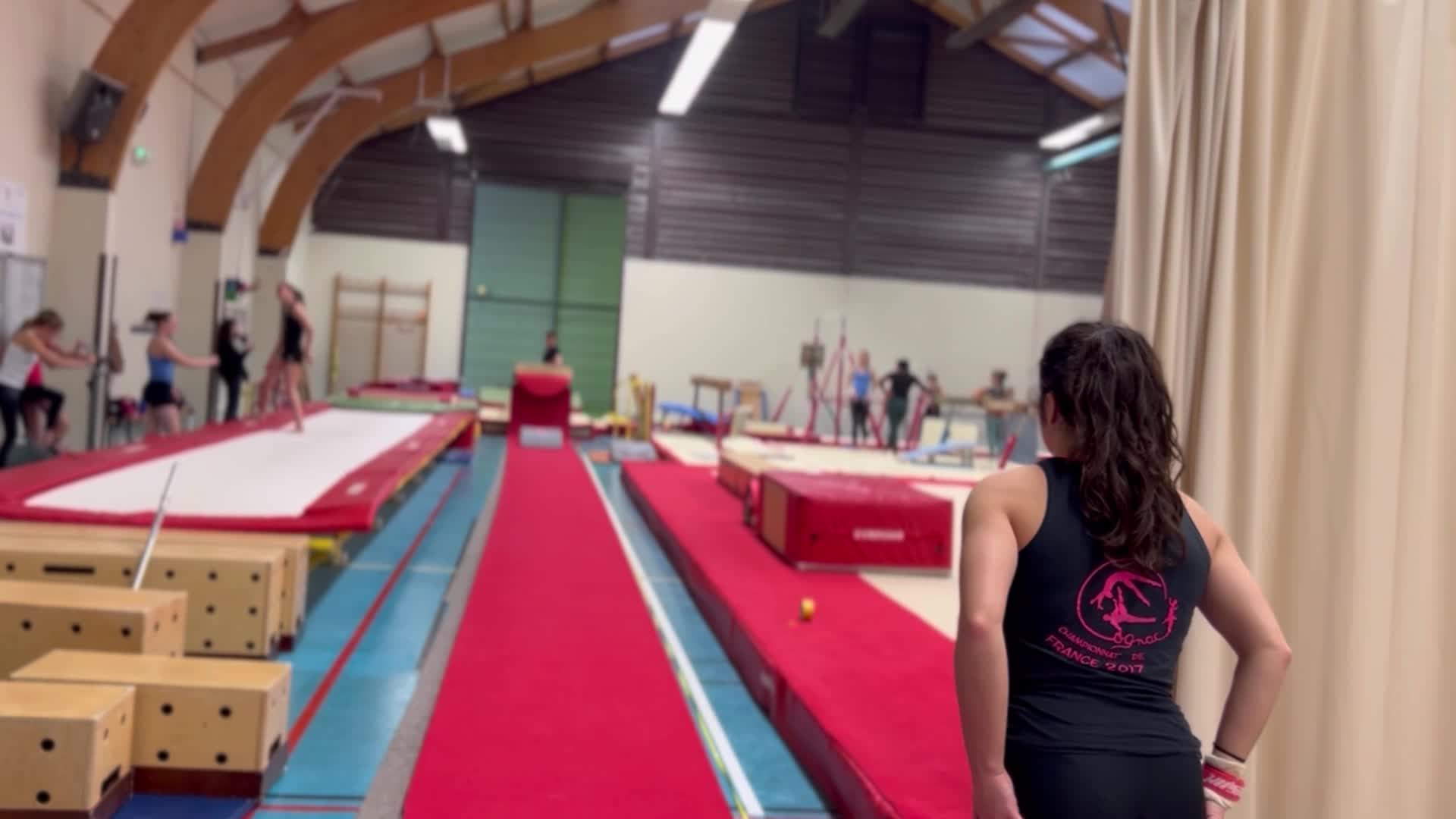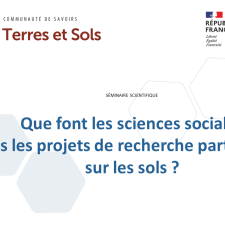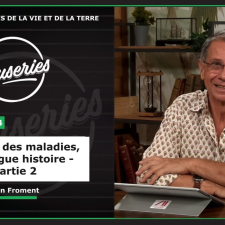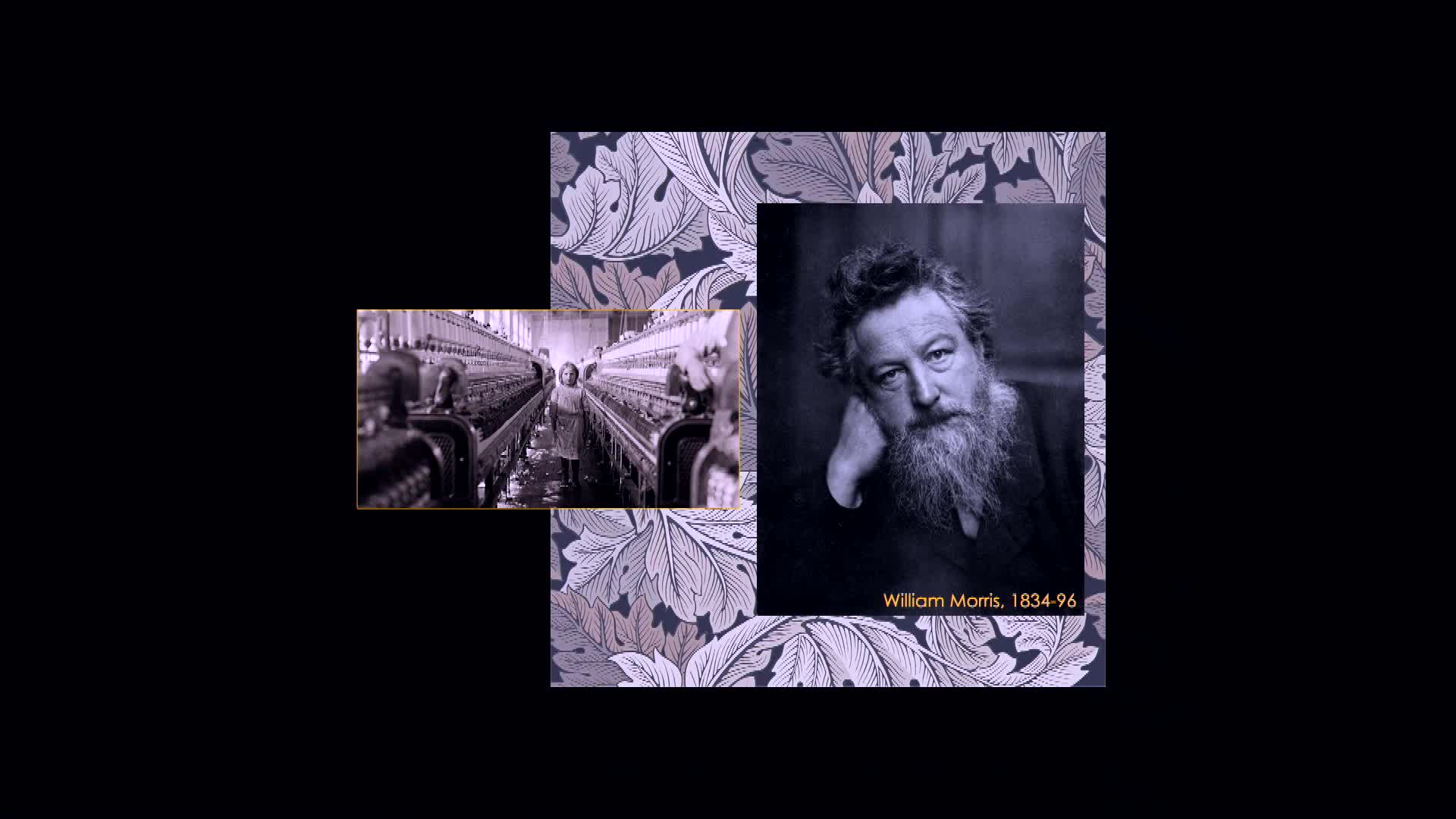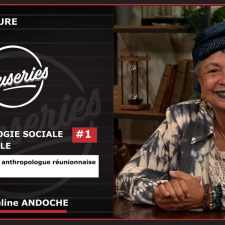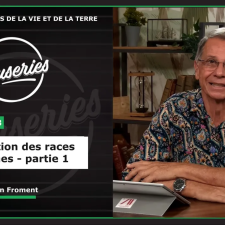Notice
La nostalgie, le retour, la quête des racines. Discussion autour du documentaire « Saudade » (« Nostalgie ») de Bela Bianco-Feldman, 1991
- document 1 document 2 document 3
- niveau 1 niveau 2 niveau 3
Descriptif
Sujets traités : La réflexion du chercheur qui produit un film documentaire ; confrontation du film aux réflexions écrites sur la question par Bela Feldman-Bianco.
SAUDADE, 1991 (58 min.)
Projet:Bela Feldman-Bianco
Réalisation : Bela Feldman-Bianco, Michael Majoros, Peter O’Neill
Edition : Michael Majoros
Caméra : Peter O’Neill
Distribution : Documentary Educational Resources (DER), Massachusetts
Placed against a background of local history, this video highlights how Portuguese immigrants have recreated their homeland’s past in their everyday life in New Bedford, Massachusetts during much of this century. This is one of the first full-length videos to document the experience and culture of the Portuguese in the United States.
The story-line of Saudade is based on the personal reminiscences of seven Portuguese women and men in New Bedford: six immigrants from the Azores, Madeira, and the mainland and one second generation Portuguese-American. The unfolding of memories, songs, and visual representations of the past is juxtaposed with contemporary ways of life; reconstruction of the homeland’s past provides continuity of immigrants’ lives in the context of their specific experiences in an American industrial city.
Intervention / Responsable scientifique
Dans la même collection
-
« Faire l’Amérique » : lettres et films d’immigrés. Projection de « Moving memories », sélection de…
SchpunMônica RaisaSujets traités : Imaginaire de l’Amérique chez les immigrés ; transmission de l’expérience migratoire aux familles restées dans le pays d’origine : les lettres de l’immigration ; l’image affichée de
-
L’exil : une expérience particulière au sein de l’immigration. Séance animée par Laurette (RIVES-CN…
WittnerLauretteLe séminaire s'intéresse à différents aspects du phénomène migratoire, avec le Brésil pour exemple privilégié. Le genre comme catégorie d'analyse et comme construction sociale, et les expériences
-
Les émigrés brésiliens et la clandestinité. Projection du documentaire « Queimando pneu na terra da…
SchpunMônica RaisaSujets traités : Réseaux liés à l’émigration clandestine des Brésiliens à l’étranger ; genre et ethnie dans la constitution des niches de travail.
-
Marché du sexe et immigration III
SchpunMônica RaisaSujets traités : Les femmes brésiliennes aux Etats-Unis et en Europe et la prostitution ; projection des rush du film « Princesas » (« Princesses ») de Fernando León de Aranoa, 2005.
-
Marché du sexe et immigration II
SchpunMônica RaisaSujets traités : Le tourisme sexuel au Brésil et la construction d’un imaginaire autour des brésiliennes.
-
Marché du sexe et immigration I
SchpunMônica RaisaSujets traités : Introduction à la problématique ; la « traite des blanches » et l’immigration ; les féministes face à la « traite des blanches ».
-
Lasar Segall (1891-1957) : peintre voyageur et cosmopolite convaincu
SchpunMônica RaisaSujets traités : Voyages, déplacements migratoires et bagage européen ; réseaux de connaissances et de sociabilités ; cosmopolitisme et liens identitaires. Connectez-vous au musée Lazar Segall
-
Mariage et projet migratoire féminin II
SchpunMônica RaisaSujets traités : Immigration et rapports conjugaux. Le cas de l'immigration brésilienne installée au Portugal. Mariages blancs (présentation d’une enquête en cours). Dans le cadre de cette
-
Femmes migrantes et processus d’intégration
SchpunMônica RaisaSujets traités : Sortir de la prostitution par le mariage et l’immigration : une porte ouverte aux femmes. Rôles genrés dans l’immigration ; femmes migrantes et rapports à la société d’accueil.
-
Mariage et projet migratoire féminin I
SchpunMônica RaisaSujets traités : Immigration et rapports conjugaux : l’ordre du genre en question. Mariages interethniques ; « picture brides ».
-
Le quartier ethnique en question III
SchpunMônica RaisaSujets traités : Pratiques communautaires et formes différenciées d’inscription urbaine.
-
Le quartier ethnique en question II. Projection du documentaire « Gambarê » de José Carlos Lage, 20…
SchpunMônica RaisaGambarê raconte l'histoire du quartier "Liberdade", mettant l'accent sur l'influence exercée par les immigrés japonais lorsqu'ils transfèrent à leur habitat la culture, les moeurs et les traditions du
Avec les mêmes intervenants et intervenantes
-
« Midi de Brésil(s) » - Les années Lula : politiques sociales ou néolibéralisme ? - A l'occasion de…
BessinMarcSchpunMônica RaisaCabanesRobertSantosYumi Garcia dosGeorgesIsabelVeloso HirataDanielVieira da CunhaNeivaRizekCibele SalibaShimbo ZaninLuciaBrésil(s), n°6 | Les années Lula : politiques sociales ou néolibéralisme ? Ce numéro fait intervenir des spécialistes qui s'interrogent sur le bilan de Lula : est-il le reflet de politiques sociales
-
« Midi de Brésil(s) » - Dilemmes anthropologiques - A l'occasion de la publication du numéro 4 de l…
SchpunMônica RaisaL'EstoileBenoît deHerrenschmidtOlivierHoffmannOdilePantojaMariana CiavattaVéranJean-FrançoisFryPeterBoyer-AraújoVéroniqueVelhoYvonne Maggie AlvesBrésil(s), n°4 | Dilemmes anthropologiques Ce numéro offre un espace de discussion sur les rapports entre pratique anthropologique et engagement politiques selon deux grandes lignes : en examinant
-
« Midi de Brésil(s) » - Hétérotopies urbaines - A l'occasion de la publication du numéro 3 de la re…
PeralvaAngelinaAgierMichelSchpunMônica RaisaFrugoli JuniorHeitorSoutyJérômeBirmanPatríciaBrésil(s), n°3 | Hétérotopies urbaines Comment penser l'altérité à partir des lieux ? Comment la vie sociale s'organise à partir de certains « lieux autres » ? Si l'on peut considérer les lieux
-
« Midi de Brésil(s) » - Tsiganes - A l'occasion de la publication du numéro 2 de la revue Brésil(s)
SchpunMônica RaisaHirataHelena SumikoBerocan VeigaFelipeBordigoniMarcFottaMartinOliveraMartinVincentBernardWilliamsPatrickBrésil(s) n°2 | Tsiganes Le numéro est composé d'un dossier organisé par Marc Bordigoni et Mônica Raisa Schpun et consacré aux Tsiganes au Brésil, avec 4 articles inédits dont 3 écrits par des
-
« Faire l’Amérique » : lettres et films d’immigrés. Projection de « Moving memories », sélection de…
SchpunMônica RaisaSujets traités : Imaginaire de l’Amérique chez les immigrés ; transmission de l’expérience migratoire aux familles restées dans le pays d’origine : les lettres de l’immigration ; l’image affichée de
-
Les émigrés brésiliens et la clandestinité. Projection du documentaire « Queimando pneu na terra da…
SchpunMônica RaisaSujets traités : Réseaux liés à l’émigration clandestine des Brésiliens à l’étranger ; genre et ethnie dans la constitution des niches de travail.
-
Marché du sexe et immigration III
SchpunMônica RaisaSujets traités : Les femmes brésiliennes aux Etats-Unis et en Europe et la prostitution ; projection des rush du film « Princesas » (« Princesses ») de Fernando León de Aranoa, 2005.
-
Marché du sexe et immigration II
SchpunMônica RaisaSujets traités : Le tourisme sexuel au Brésil et la construction d’un imaginaire autour des brésiliennes.
-
Marché du sexe et immigration I
SchpunMônica RaisaSujets traités : Introduction à la problématique ; la « traite des blanches » et l’immigration ; les féministes face à la « traite des blanches ».
-
Lasar Segall (1891-1957) : peintre voyageur et cosmopolite convaincu
SchpunMônica RaisaSujets traités : Voyages, déplacements migratoires et bagage européen ; réseaux de connaissances et de sociabilités ; cosmopolitisme et liens identitaires. Connectez-vous au musée Lazar Segall
-
Mariage et projet migratoire féminin II
SchpunMônica RaisaSujets traités : Immigration et rapports conjugaux. Le cas de l'immigration brésilienne installée au Portugal. Mariages blancs (présentation d’une enquête en cours). Dans le cadre de cette
-
Femmes migrantes et processus d’intégration
SchpunMônica RaisaSujets traités : Sortir de la prostitution par le mariage et l’immigration : une porte ouverte aux femmes. Rôles genrés dans l’immigration ; femmes migrantes et rapports à la société d’accueil.
Sur le même thème
-
-
Séminaire AFA | Présentation du numéro 178-179. Face à l'injonction participative
LacascadeYvesGélineauLucieLeroyDelphineSpireAmandinePrécigoutFrédéricMontagneKarenBoutinotLaurenceTerrisseGaëlleFerronRichardBotteroMarionFranckAliceMonchyAlizaFace à l'injonction participative, Séminaire AFA, 17.03.2025. Présentation du numéro 178-179 du Journal des anthropologues
-
Journée d’étude I Les lucioles : art, culture et espoir dans les périphéries urbaines de Rio et de …
Capanema P. De AlmeidaSílviaFacinaAdrianaBirmanPatríciaMerklenDenisCarneiroSandra de SáDans nos paysages urbains généralisés, nous cherchons les lucioles. En leur absence, les collectifs culturels sont capables de rallumer les étoiles, comme dans les vers d’Apollinaire. Autrement dit,
-
An Anthropologist looks at Architecture
IngoldTimAn Anthropologist looks at Architecture : Conférence du 8 avril 2025 dans le cadre du cycle les leçons du mardi "Ecoles plurielles" proposé par Grégoire Deberdt, Iris Lacoudre et Camille Sineau
-
Regard d’une anthropologue sur le risque de dissémination de pathogènes par les déchets plastiques
FacheÉlodieÉlodie FACHE présente le projet VECTOPLASTIC sur le risque de transmission de bactéries pathogènes des microplastiques marins vers les animaux qui les ingèrent , puis vers les humains qui consomment
-
Les techniques du corps en gymnastique artistique
Portrait d'une jeune gymnaste en apprentissage depuis ses 4 ans. On le retrouve dans le gymnase de la Vallée Violette à Joué-les-Tours.
-
Que font les sciences sociales dans les projets de recherche participative sur les sols ? - Cosavez…
Que font les sciences sociales dans les projets de recherche participative sur les sols ?
-
L'Homme #4 - L'origine des maladies, une longue histoire - Partie 2
FromentAlainBrunet-MalbrancqJoëlleL'Homme #4 - L'origine des maladies, une longue histoire - Partie 2
-
L'Homme #4 - L'origine des maladies, une longue histoire - Partie 1
FromentAlainBrunet-MalbrancqJoëlleL'Homme #4 - L'origine des maladies, une longue histoire - Partie 1
-
À la poursuite du plaisir : désirs et défis des artisans contemporains
MarchandTrevor Hugh JamesProfesseur d’anthropologie sociale (SOAS, Université de Londres) et collaborateur scientifique de la MSH, Trevor Marchand explore le thème de la poursuite du plaisir au travail chez les artisans
-
Anthropologie Sociale et Culturelle #1 - L'itinéraire d'une anthropologue réunionnaise
Brunet-MalbrancqJoëlleAnthropologie Sociale et Culturelle #1 - L'itinéraire d'une anthropologue réunionnaise
-
La question des "races" humaines - Partie 1
Brunet-MalbrancqJoëlleFromentAlainCauseries Sciences de la Vie et de la Terre - L'Homme #3 - La question des races humaines - Partie 1


